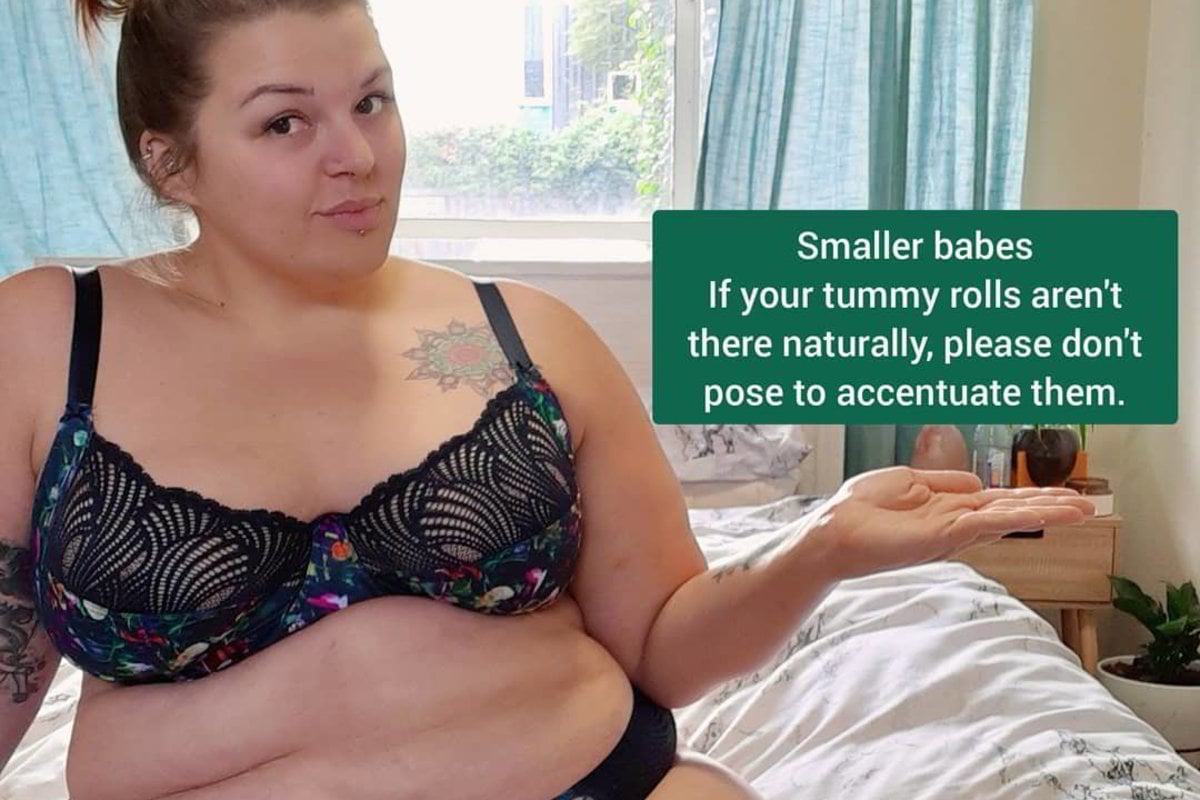
Instagram vs reality posts are those two side-by-side images we see all over our feeds.
One image is the perfectly curated and posed version of ourselves that we share on Instagram, and the other (usually taken 30 seconds later) shows a less posed, less glamorised version.
Often the point is to show off micro-flaws such as fat rolls, skin pigmentation, stretchmarks, or cellulite. These posts are naively intended to remind us that influencers and celebrities are real people and that they have ‘flaws’ too.
I hate these posts.
Watch: How to improve your daughter's body image. Post continues below.
I hate these posts because the majority of people posting them are thin, white, able-bodied women who pose to accentuate their rolls or ‘flaws’ or, sometimes, to create new rolls entirely.
The vibe is “here are all my flaws, and I love myself anyway”. The thing is that I live with all of those so-called flaws every day and nobody calls me brave.
My body and my rolls are there 100 per cent of the time. There is no photo angle or position where I can pose where I don't have rolls. I can’t use filters or poses to shrink myself so that I fit within societally enforced unattainable standards of beauty (ie. thin and white).

Top Comments